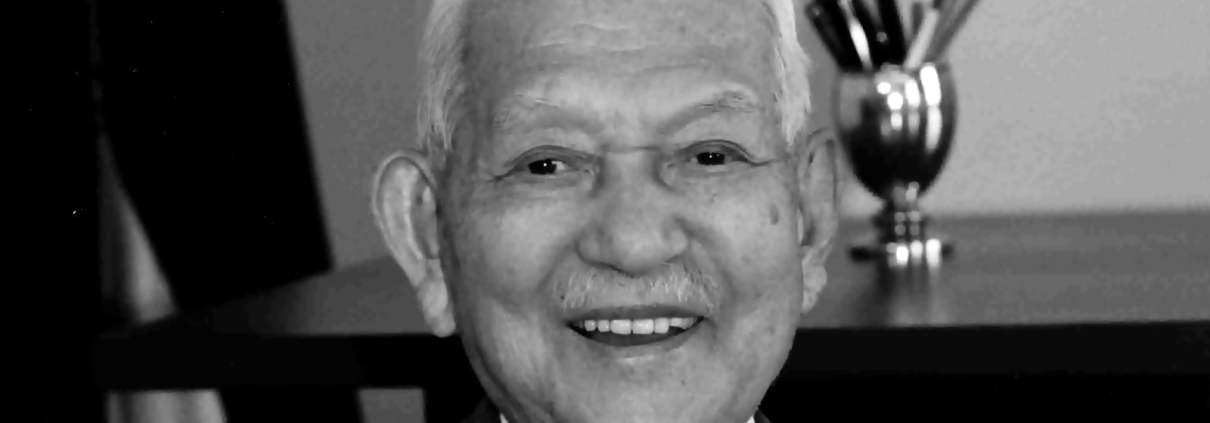Pt. 4: A self-proclaimed Fascist with a Story Stranger than Fiction
One of the weirdest characters in this period is Ryoichi Sasakawa, whose life story is stranger than fiction. Born in Minoh, Osaka in 1899, Sasakawa rose to prominence in the 1930s during the Sino-Japanese War by amassing wealth through rice speculation to build a personal fighter jet squadron. While his cover story was to provide a voluntary squadron of trained pilots in case of a national emergency, it is rumored that as leader of the fascist the Patriotic People’s Party he recruited a 150,000 man army that plundered China, used his air fleet to traffick opium into Japan from Manchuria, and did a whole bunch of other bad stuff.
As a self-proclaimed fascist, in 1939, Sasakawa flew his air squadron to Rome to meet Mussolini, his personal hero. Sasakawa also built an air defense field, donating it to the Imperial army. Once Japan began to coordinate its air power in 1941, Sasakawa donated all of his facilities and aircraft to Japan. In addition, he supported the army by leveraging mines that he had accumulated using his vast wealth. He even had a brief stint in politics during the wartime years.
After Japan lost the war, Sasakawa had a new mission: get into Sugamo prison. While there was little possibility of his detainment, much less as a Class A war crimes suspect, in late 1945, he launched a campaign of twenty or so speeches in Osaka, decrying victor’s justice and demanding to be taken as a prisoner so that he could help defend Japan in the Tokyo war crimes trials. He was supposedly, “motivated by a desire to speak out in defense of the emperor and in the interests of Japan at the Tokyo Trials”.
The Occupation forces eventually arrested him, and he got exactly what he wanted, the ability to schmooze with many of the men who had led Japan during the war. These leaders, at least those who weren’t sentenced or hung, ironically went on to reassume key positions of power after their release.
In 1951, after being released from Sugamo without being charged, Sasakawa used his new connections to make even more money. After lots of bribing parliamentarians, the Japanese Diet passed the Motorboat Racing Law, which was 100% Sasakawa’s invention. Under this law, state-operated boat-racing gambling events were to be held at 24 locations around the nation to bolster local economies and provide revenue to support the reconstruction of Japan’s maritime industry and welfare projects around the war-wrecked Japan. In later years, international projects were also added. The law established that the distribution of the monies to support projects was to be performed by the Japan Shipbuilding Industry Foundation, a body that eventually came to be known as the Nippon Foundation. Naturally, Sasakawa became the foundation’s chairman.
Besides making Sasakawa ridiculously rich, the money generated from this gambling empire was largely responsible for Japan’s meteoric rise to become one of the world’s maritime leaders by the 1960s. The system is regulated by the Department of Transport, and many of the foundations Sasakawa later created through grants by The Nippon Foundation were led by retired employees of the Department of Transport.
Under Sasakawa’s leadership, The Nippon Foundation made charitable contributions both in Japan and around the world, working with the United Nations on maritime law and with the World Health Organization, donating over $70 million dollars to fight leprosy.
The group also created a host of other charitable organizations, such as the United States-Japan Foundation, The Sasakawa Peace Foundation, the Sasakawa Africa Association, and the University of Houston’s Sasakawa International Center for Space Architecture. The Nippon Foundation also runs the Ryoichi Sasakawa Young Leaders Fellowship Fund for university students across the world.
Sasakawa became deeply involved in the post-war reconstruction, and as a staunch Anti-Communist he was well-positioned to get along with the political leaders of the time. Along with his friends Syngman Rhee, the first President of Korea, and Chiang Kai-shek, the Chinese nationalist leader, he founded the World Anti-Communist League. Among other coups, the league claims to have played a part in the 1966 overthrow of Indonesia’s President Sukarno.
Ryoichi Sasakawa once said, “I am the world’s richest fascist.”
While Sasakawa is an anti-hero of sorts, having partaken in a whirlwind of illegal, immoral, and dastardly activities, he is an example of how Japan rose from the ashes of WWII and became a major world power in an extremely short period of time.



